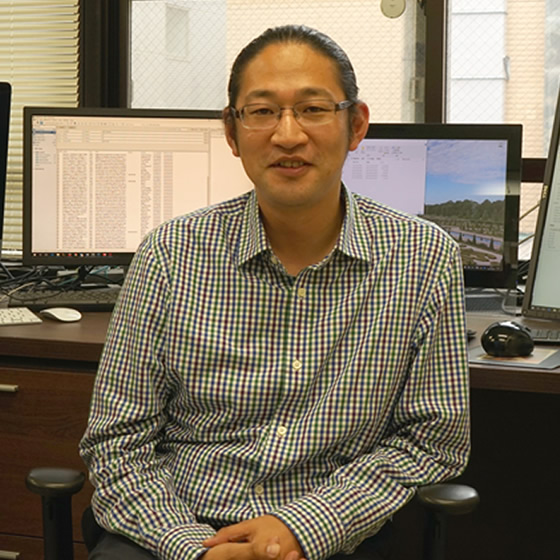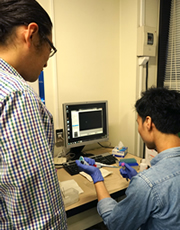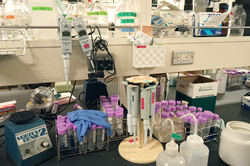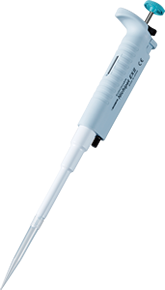PIPETTE / DISPENSER / CUSTOM MADE & OEM
PIPETTE / DISPENSER / CUSTOM MADE & OEM

2017.07 Updated
We talked to Professor Taisuke Tomita of Neuropathology and Neuroscience, Faculty of Pharmaceutical Sciences, The University of Tokyo
Very broadly speaking, in understanding the basic mechanism of neuropsychiatric disease, the main theme is Alzheimer’s disease. I would like to clarify the pathogenic mechanism, and use it to create therapeutic medication. (I am doing such research.) Creating medication is important, however, leaving drug discovery itself up to the pharmaceutical company and we are working on the experiment every day to find out the major mechanism of the disease. Because in my experience in the research of Alzheimer’s disease that I have been doing since I was student, big thing was that drug discovery based on my detection reached to clinical trials but never succeeded. Also since last year, we started researching autism and Parkinson’s disease, and expanded the scope of disease to be researched.
As a parable, I often talk about 'under the bed' story. Since we do not clean under the bed frequently, dust accumulates gradually and becomes solid state finally. Similar things happen in the brain, and trash is being accumulated in the brain. Simultaneously the function of breaking the trash works but the trash cannot be broken as the age advances and it will kill the nerve cell eventually. Therefore, early diagnosis is important in Alzheimer's disease because nerve cells had been dead when symptoms appear. Risk factors that can be criteria for diagnosis are considered to be originating either in gene or in environment, and we are researching both influences to the brain. Moreover, I hope that we can elucidate the prevention. Conversely, I would like to research the way to recover the people who develop dementia and nerve cell was died. Also mechanism of autism and Alzheimer's disease not well elucidated. I would like to clarify autism with molecular level. Parkinson's disease is known as similar origins of Alzheimer’s disease, however, the core mechanism has not been discovered yet, so I would like to clarify it.
Like this, the current situation is that research direction is different depending on the disease.
Until about a year ago, I was dealing with cells and others, but I cannot experiment a lot because desk work has increased recently. However, in biological experiments of the laboratory, the Micropipette is indispensable because basically all reagents are used in microliter units. It is common to use disposable chips now, but I used to use the glass pipette washing each time when I was a student, and it comes in useful thanks to the Micropipette. Furthermore, it is innovative that Micropipette can easily handle tiny amount of volume such as 1μL or 2μL, and it is becoming standard now. At present, it is impossible to perform experiment without a Micropipette.

Since I was experimenting with enzyme reaction, I was told to measure dispensing capacity of a Micropipette using an electronic balance about every 3 months when I started learning. I have an attitude that accuracy is important because there was a possibility that the result could be affected if there was an error with dispensing volume. In our laboratory, people who are concerned about accuracy maintains a pipette themselves or measure dispensing capacity. Since the Micropipettes dealing with cultivated cell in the clean bench are shared, inspect & wash them or replace the inside parts in case the pipettes seem to be less dispensing volume compared to the setting. Also, since everyone uses Micropipettes every day and they are concerned with the accuracy of experiment, I think that it is necessary to know the way of maintenance and inspection. I feel secured and am thankful that the maker like Nichiryo trains us with the most accurate method.
Thanks to Nichiryo's regular workshop and maintenance, we have better control of our pipettes. When we established the laboratory over 10 years ago, though we thought that there were no manufacturers who can accept our request on conducting regular workshop and maintenance, Nichiryo accepted our request.
Generally speaking, Nobody knows "How to maintain" in the laboratory with only full of students, even many students do not think the maintenance can be performed by themselves. I have also experienced that accuracy and precision might be shifted if we drop it or treat it roughly. In that respect, Learning at the workshop helped me to inspect the pipettes and replace the parts by myself to maintain the pipette in good conditions.
In addition, we have a sense of safety that we can be taken care immediately as Nichiryo being ans Japanese company. Since using it so frequently and there must be something broken, immediate consulting is good.

Personally, as I would like to discover something new and would like to enjoy researching, I would like my students to think that research is fun. Though I have the research that I would like to pursue now, I would like to have my students and staff to understand the content of the research they would like to do, and to inspire each other by giving them some advises. And eventually, I would like to be the hope of the people who suffers from the disease, such as development of therapeutic medications.

Best Selling Model of Nichipet Series
Fully autoclavable. ( 121°C for 20 minutes )
Enhanced UV resistance.
NIchipet EXⅡ:
https://www.nichiryo.co.jp/en/product/pipette/ex2/

Select a Region / Language
Asia-Pacific
Americas
Europe, Africa, Mid East